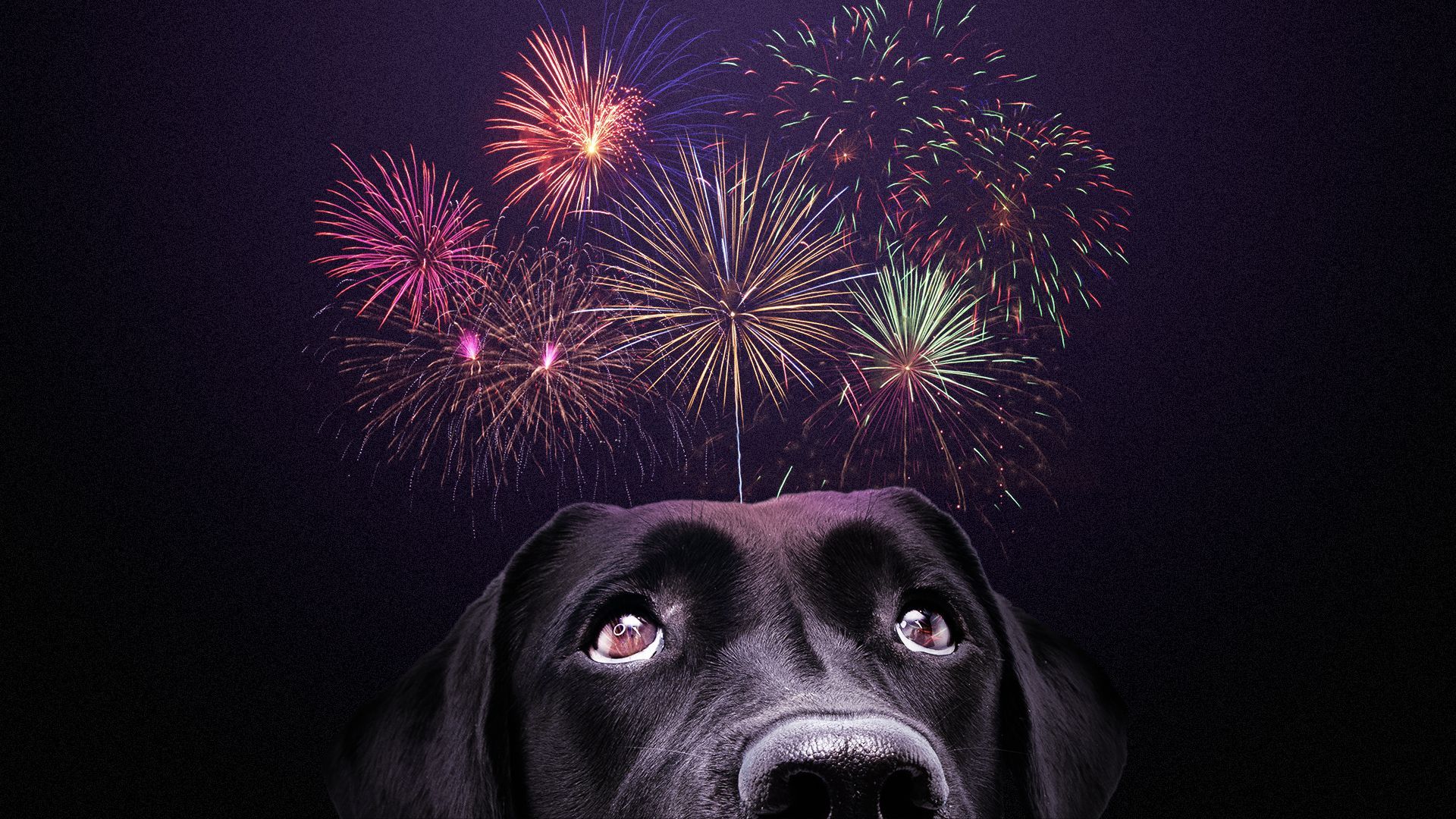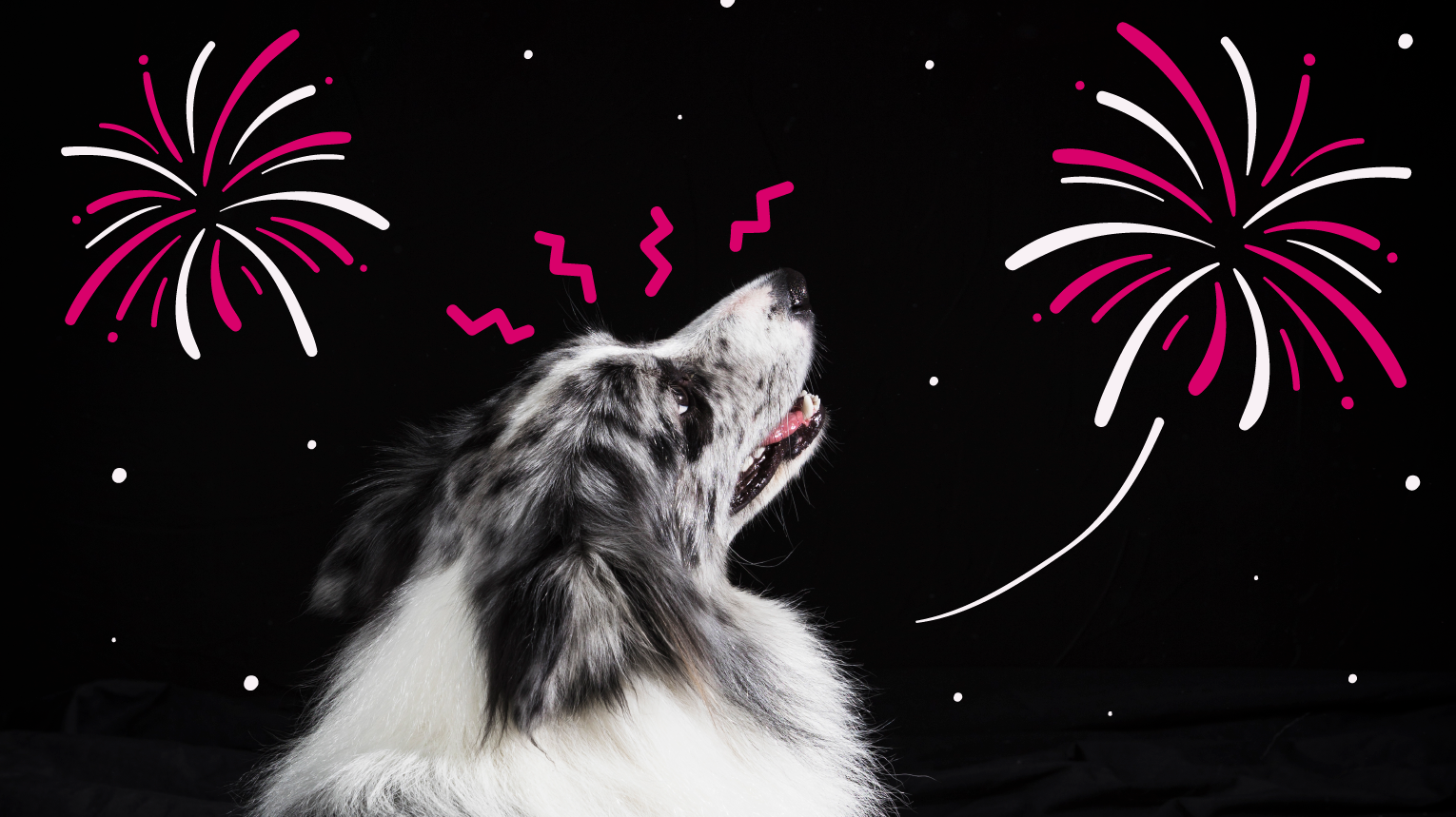While many Americans revel in the dazzling fireworks on the Fourth of July, for dog owners, this time can be challenging. The loud noises and bright flashes can cause significant stress and anxiety for pets. Here’s how to prepare and protect your pets during the festivities.
Preparing Pets for Fireworks
Veterinarians and animal care experts emphasize the importance of preparing pets in advance for the fireworks. According to the American Society for the Prevention of Cruelty to Animals (ASPCA), nearly one in five lost pets go missing after being scared by loud noises like fireworks. Staycee Dains from Los Angeles Animal Services expresses concern about shelters being inundated with runaway pets post-July 4th.

To prepare pets, ensure they have ID tags or registered microchips with up-to-date contact information in case they run away. Gradually acclimate pets to the sounds of fireworks by playing recordings at low volumes while giving treats. Slowly increase the volume over time as the pet becomes more comfortable. Special earmuffs for dogs can also be introduced gradually before the holiday.
For pets with severe anxiety, anti-anxiety medications may be considered. Dr. Carly Fox from the Schwarzman Animal Medical Center in New York City advises consulting a veterinarian ahead of time and testing any medication before the holiday to gauge its effect. “It gives you a sense of how sedate your pet’s going to be,” Fox explains.
Keeping Pets Calm During Fireworks Displays
On the day of the celebration, veterinarians recommend tiring out pets before the fireworks begin. During the displays, keep pets indoors with curtains and blinds closed to block out the visual and auditory stimuli. Avoid leaving a scared pet home alone.
Distract pets with high-value treats, preferably placed in puzzle toys to keep them occupied. Playing calming music or white noise can also help to mask the sound of fireworks. If your pet feels safe in a crate or specific room, ensure they have access to it to prevent panic-induced injuries.
When taking dogs outside, always use a leash, even in fenced areas, as sudden noises might cause them to run. For horses and livestock, keep them securely fenced or in barns. After the fireworks, check your yard for debris before letting pets outside.
Understanding Fireworks Anxiety in Animals
Animals have much more sensitive hearing than humans, which makes the booming sounds and bright flashes of fireworks particularly distressing. According to Dr. Ruth MacPete, many pets are terrified by the loud noises and sudden flashes of light. The unpredictability of these noises can trigger a fight-or-flight response in dogs.
Dr. Sandra Mitchell from Animal Medical Associates explains that while humans anticipate fireworks, dogs do not understand this tradition, leading to genuine fear. Signs of anxiety in dogs include urinating or defecating indoors, drooling, panting, destructive behavior, depression, excessive barking, pacing, restlessness, and repetitive behaviors.

Additional Safety Tips
Besides managing fireworks anxiety, pet owners should be mindful of other potential hazards during Fourth of July celebrations. The American Veterinary Medical Association advises keeping pets away from charcoal, barbecue grills, and kabob skewers, which can cause injuries. Certain foods are also dangerous for pets, including chocolate, onions, grapes, raisins, fatty and fried foods, macadamia nuts, avocados, and xylitol-containing products. Avoid giving pets alcohol, citrus fruits, salty food, yeasted dough, and corn on the cob, as these can cause severe health issues.
